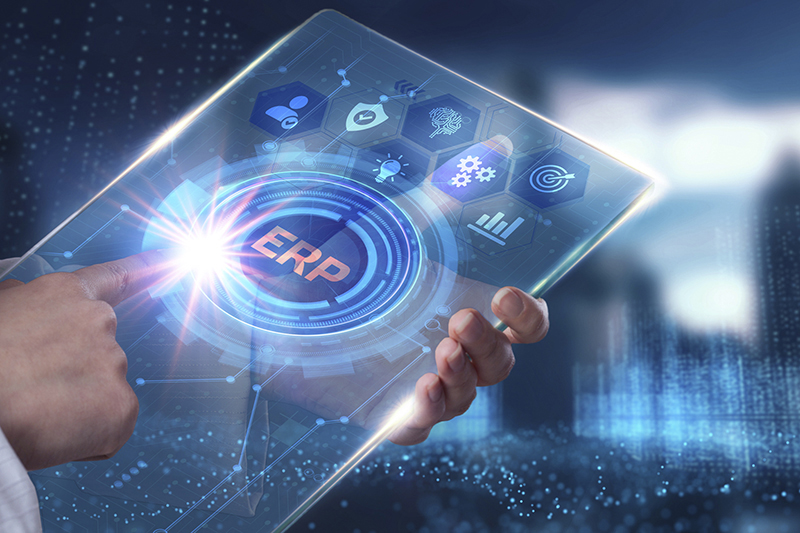Navigating Hong Kong’s Electronics Industry with Future-Ready ERP Systems
The electronics sector in Hong Kong has been a pioneer of technological advancement, yet it emerges as a major player in the challenges due to its uniqueness. The conventional disruptions in the supply chain, rapid replacing of technology, and the shortage of highly skilled labor in the region makes it different from other industries. Additionally, things like cybersecurity attacks and unpredictable consumer behavior are the challenges not only of the electronics field but a host of others also. Indeed, these troubles consider the real need for enterprise resource planning (ERP) systems that enhance overall productivity and maintain competitive benefits.
Challenges Exclusive to Hong Kong’s Electronics Sector
Given the very dynamic character of the electronics sector in Hong Kong, firms have to deal with continuous loss of materials due to global economic changes and trade barriers as the main reason. The fast evolution of the industry brings a requirement for fast and frequent updates in technology, which leads to the quicker obsolescence of products as compared to other sectors. Besides, there is the problem of the lack of professional labor in the region that worsens the situation, as firms find it hard to obtain and keep individuals equipped with specialized technical skills.
Cybersecurity threats, the major dark spots in the electronics industry, are affecting their capacity to control and protect sensitive data. This issue is the same across the globe with a lot of other industries. On one hand, fluctuating consumer demands result in the need for firms to be more elastic in their production and marketing activities.

The Strategic Role of ERP systems in Overcoming Challenges
Enterprise resource planning systems integrated with artificial intelligence are the most valuable tools in the electronics sector in Hong Kong. ERP systems centralizing and streamlining the operations that are involved help firms increase their performance and durability toward disruptions.
ERP systems are the very best in supply chain management due to the visible flow of materials and information ensuring the firm is on track maintaining competitiveness. The AI-enhanced algorithms predict the demand and automate logistics, by which means consumer trends are stabilized with little effort. Furthermore, the ERP system creates an environment in which the employees can learn and improve their skills and thus are retained.
In addition, AI agent capabilities embedded within ERP systems, like those provided by LAIDFU, afford tailored solutions to automate different processes, thereby reducing costs and increasing productivity. The combination of these state-of-the-art technologies makes it possible for firms to soar to new levels in terms of productivity and creativity. It goes without saying, but the adoption of AI-infused ERP solutions is a considerable step in the direction of overcoming complex industry issues.
Guideline for Successful ERP Implementation
Adopting an ERP system requires a laid-out strategy that will guarantee smooth integration and operational efficacy. Primarily, it is crucial for firms to map out clear objectives and the ways that these can be measured. They need to include stakeholders across the departments to ensure the system meets all needs and challenges. A well-rounded training program will give the employees the tools they need to make full use of the ERP system, while regular audits and updates ensure that the system continues to function at peak efficiency.
Leveraging Key Features of Multiable ERP System
Multiable aiM18 ERP is a standout ERP with its proprietary features targeted at the very issues that the electronics sector is facing. The following are five of the main characteristics:
- Custom Algorithm for Regulations: Reacts instantly to market changes, ensuring compliance without manual interventions.
- Automatic Logistics Service Provider Selection: Optimizes logistics through AI, for timely and cost-effective delivery.
- Unlimited Warehouses: Unlocks spacious storage options, giving enterprises flexibility and the possibility of growth.
- BOM Powered by AI: Boosts production processes by the Bill of Materials management, which is driven by AI.
- User-Defined Fields with Real-Time Refresh Logic: Offers customization flexibility, allowing businesses to tailor systems to specific operational needs.
AI Integration through LAIDFU for Enhanced Capabilities
Multiable’s ERP system has the edge due to the link to LAIDFU, an AI agent builder, which the firm tackles the issue of automation by means of the emulation of LLMs. In times of tariff uncertainties, the introduction of new and advanced AI solutions is no longer just a competitive edge – rather it is a must in the cutting of costs and raising of productivity.
What is Multiable ERP?
Multiable ERP is a cloud-native ERP widely adopted by business in Singapore, Malaysia, Hong Kong and China. With over 6,000 customers in the region, Multiable ERP gains positive feedbacks from customer across different sectors, from manufacturers, distributors, retailers, service providers to NGOs. The renowned no-code approach saves customer a big sum of customization costs and countless hours of implementation man-days.
What is LAIDFU (Let AI Do for You)?
LAIDFU is an AI tool for enterprise to build their own AI agents to perform various business AI tasks.
Proprietary EKP (Enterprise Knowledge Partitioning) technology eases CEO’s concern about trade secret leakage which often occurs in most AI agents / chatbots in the market.
EKP removes the hurdle of business AI adoption by most companies in using sensitive corporate data.
Powered by no-code approach, deployment of LAIDFU incurs far less developers (and development costs) in comparison with other AI tools.
LAIDFU empowers business, with or without an ERP system in place.
Contact us

